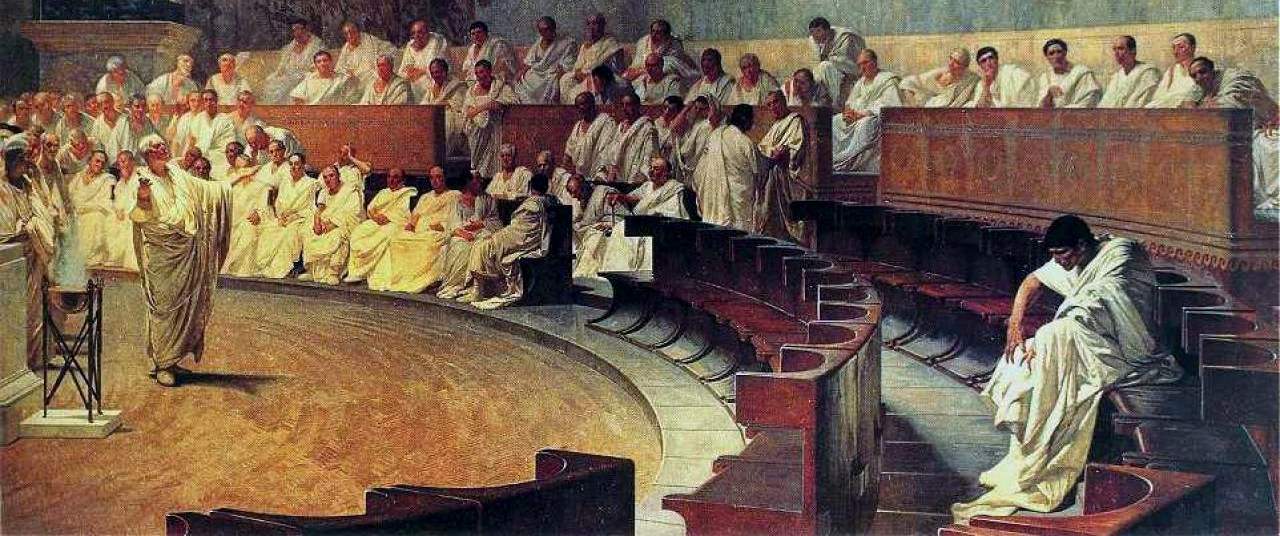If a local pizza place has been around for twenty years, it can’t be bad pizza. If advice has been around for 2000 years, it can’t be bad advice. Here are four more suggestions from Roman author and philosopher, Seneca. (In case you missed part one it’s here.)
1. Don’t be expectant
“The greatest obstacle to living is expectancy, which hangs upon tomorrow and loses today.”
Don’t daydream of the future; take action. Do something that seizes the moment rather than speculating or being indecisive.
This is why posts on Productivityist consistently talk here about doing things, not planning things. It’s not productivity for the sake of productivity – it’s much deeper. It’s finding the things in life that make us alive and doing more of those things and make time for those things.
Seneca’s not scolding the idea of having a plan. Rather, in the words of Yoda, “Do or do not. There is no try.”
2. Avoid triviality
“It used to be a Greek failing to want to know how many oarsmen Ulysses had.”
The many sources of internet advice is a blessing, but also needs to be managed. A lot of advice – especially online – is about this triviality. Don’t fall for it. It doesn’t matter what the best way to fold a shirt is. It doesn’t matter if you should change apps. It doesn’t matter. The only thing that matters is doing.
Before kids, I loved to spend all weekend watching football. It was a gluttonous affair even before I got to the food. After kids, football moved from a necessary to something that is trivial. Kids don’t want to spend two consecutive days watching three-hour games, and consequently, I didn’t either.
Football became a as trivial to me as Ulysses’s oarsmen. It didn’t matter because our priorities and trivialities evolve along with our lives.
3. Be a learner
“By the toil of others we are led into the presence of things which have been brought from darkness into life.”
It’s through the wisdom of others that we can learn more than what we might in our lifetime. You can see this in coaching, like what Mike Vardy does. Seneca writes, “The person who learns, annex every age to theirs.”
Deep sea divers know this. When you are limited in how long you can breathe, you need to use your time efficiently. When John Chatterton was part of the dive crew that discovered a sunken U-boat 60 miles off the coast of New Jersey he knew he had to learn about the boat. The day after the underwater discovery he flew to Chicago and walked through the U-boat on display. And he did it again. He did 8 times in all.
Chatterton was using the “toil of others” to learn what the submarine looked like. He could have spent 25 minutes at a time underwater figuring things out. Instead, he leveraged the work of others to help him learn.
4. Make your way with vigor
“Now while the blood is hot you should make your way with vigor to better things.”
Seneca implores us to take action on this, and the other things we learned. His advice is to find the most important things in life, seize them, and not let go until we are done.
We should burn bright during the best part of our day. Whether it’s first thing in the morning, or late at night.
Lean toward action, not expectations. Tilt toward core truths not titillating trivialities. Be a learner. Go with vigor.
Which of these four lessons will you act on, today? Let me know in the comments or on Twitter, @MikeDariano.
–
These quotes all come from On The Shortness of Life by Seneca. There he alls writes: “It is not that we have a short time to live, but that we waste a lot of it.”


